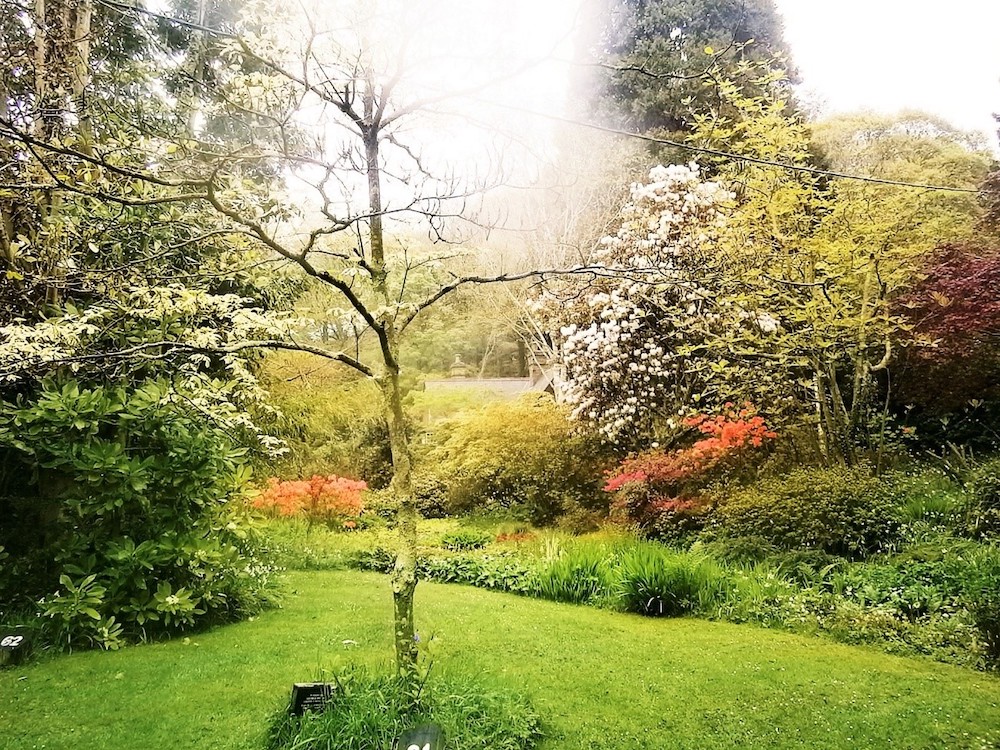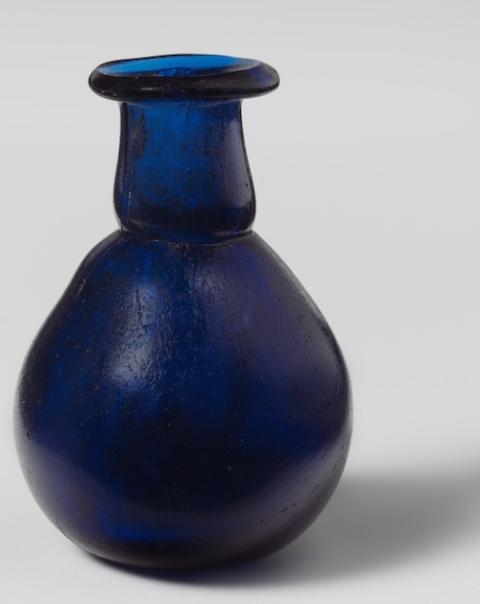
Women were the first witnesses to the Resurrection, and thanks to the perfume — the trace of which we are able to follow since that woman perfumed the feet of Jesus, as he awaited an unjust execution — today we have been able to arrive in the garden, in spite of the bitter aroma of the attitudes of some of the apostles. Image: County Wicklow, Ireland, garden (Magda Bennásar)
When nature is devastated by fire, small islands of vegetation that have been protected by Mother Nature often appear among the ashes.
These spaces become seedbeds which allow forest life to regenerate.
Scientists do not know how exactly this phenomenon occurs, but these ecological shelters are essential to life after destruction.
We do not know how they are formed, but we are able to understand this experience at a cultural, social and also spiritual level. For example, during the invasions in Europe, the Benedictine Monasteries were a refuge for culture and spirituality in the Middle Ages.
We do not know how the Resurrection happened; the speculative questions do not fit because the biblical stories are not like a newspaper that reports news, nor are they history books, even if they relay historical facts. Their goal is not the news itself, but to inform and to feed the faith of the community.
Thus — like these shelters of vegetation — were the first Christian communities, and we ourselves continue this tradition. For us to have experienced this regeneration or renewed life is to have experienced that he lives: in us, in nature, in our homes, in being, in solidarity.
We live the resurrection of Jesus, and our own, as a life experience. No one saw Jesus rise from the grave! What they experienced then, and we continue to experience now, is that he is alive ... A life which remains throbbing even when it is surrounded by the most devastating of fires.
Advertisement
Women were the first witnesses to the Resurrection. However, the history of the Christian institution — from the beginning of Christianity written and controlled (until recently) only by men — has not appreciated the great responsibility Jesus delegated to women.
But, thanks to the perfume — the trace of which we are able to follow since that woman perfumed the feet of Jesus, as he awaited an unjust execution — today we have been able to arrive in the garden, in spite of the bitter aroma of the attitudes of some of the apostles.
The women are for Jesus, and the condemned of history, like those ecological gardens in the midst of the ashes. They are an aromatic garden of seedlings of new life, emitting the fragrance of fidelity to friendship that united them to the Master of Nazareth, or the fragrance of gratitude for having been respected, which we see in Mary of Bethany.
Her gesture (John 12:1-8) was a source of inspiration for the Master, possibly for his Holy Thursday washing of the feet (John 13:1-20).
Throughout history, as in the biblical texts that are proclaimed and celebrated in the days before Easter, women — now as before — are aware that they were and are called to be (with the tools and teachings of the Master) a refuge and a seedbed of life in the midst of the devastation of the institutional forest.

Roman blown glass perfume bottle, first century A.D. (Metropolitan Museum of Art)
Who are they who go to the orchard-garden, at dawn? They have no idea what will happen to them, yet there they go, faithful and confident, to pay homage to the One who loved them.
They go at dawn, between two lights, with the shadow of death glued to their soul by the sadness which overwhelms them — and accustomed to walking alone and in the dark — they go with their perfume to embalm a corpse, a gesture typical of the Jewish mortuary ritual.
John (20:1 ff) places us upon a path, a process. "The first day of the week" refers to the beginning of the new creation, the new era in which life has overcome death. It is the day after the sixth day, referring to the narrative of creation. Jesus, the finished man, has completed the first creation. The last day was that of the cross.
We venture forth, hand in hand, with the women and their perfume. Undaunted, they go into the night of the times, the night of death and — clinging to the perfume, symbol of love for the Beloved (Song of Songs 3:1) — they walk through the darkness into the barely perceptible light of the dawn.
Next: the stone, which we believe we cannot move. The problem of who would move the stone away from the grave is solved if we do not allow fear to paralyze us, and, like those women, we also continue walking.
Finally: garden and cemetery at the same time. Depending upon our gaze, it is the place of death or of life. A space of vital encounter, of the One who has conquered death, with the woman who, for and out of love, has overcome the fear of a dying religiosity; is living fully her dignity as daughter of God. In dialogue with the risen One, she receives from his lips her personal call: "Maria;" her "sending" to be a seedbed of life for a frightened, lukewarm community, because of the adverse circumstances.
Today the panorama is not any easier. But let us not forget that the strength of the risen One is within and among us, like our forest gardens. Discovering them is exciting. And it is a great vaccine for the soul against any virus that might attempt to enthrone itself in our hearts.
Happy Easter!







